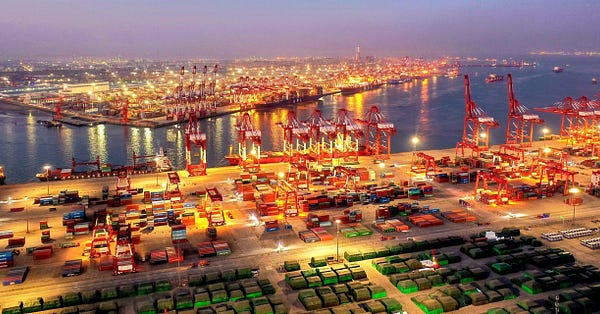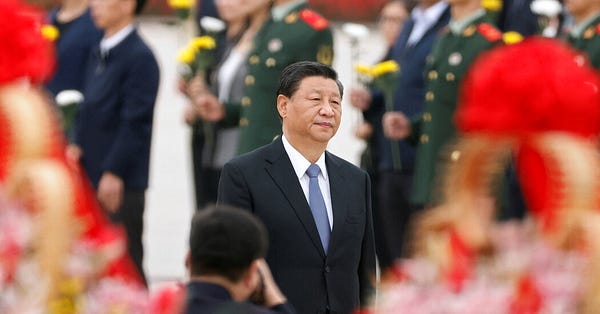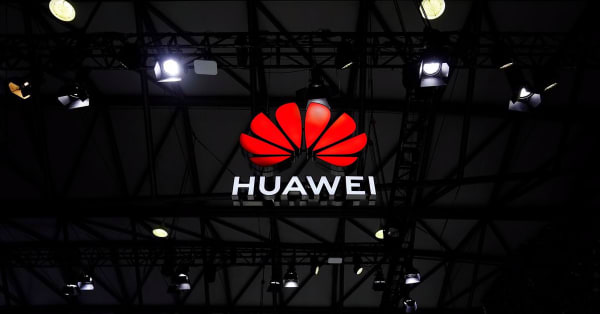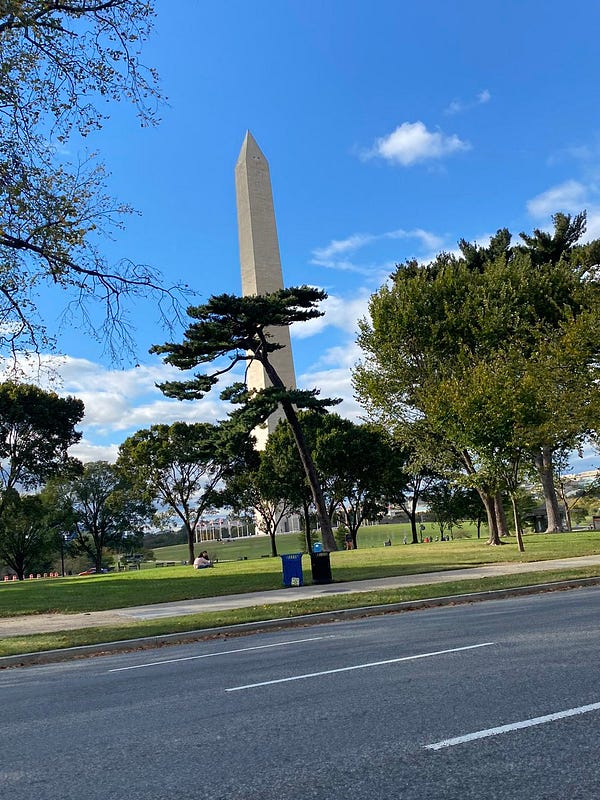Welcome to the 90th edition of Trade War.
The pandemic has forced China’s rebalancing goal to take a back seat, bad news for the transition to a healthier economy. Alibaba’s one year market performance is world’s worst. And China’s stocks continue to underperform everywhere else.
UBS proclaims it is “full bull” as global banks pile into China. And Xi Jinping stays home for 21 months as China turns inward.
Pandemic hits China rebalancing
China’s aim to rebalance towards a more consumption-driven economy is being tested by the pandemic, reports the Wall Street Journal’s Stella Yifan Xie.
While the trade war with the U.S. made that goal seem even more critical, COVID-19 has taken China “in the opposite direction, making exports a larger driver of growth than at any other time in years,” writes Xie. Meanwhile, retail sales, a proxy for consumption, grew 4.4 percent in September, well below the 8 percent growth for all of 2019, pre-pandemic.
That’s partly because China didn’t put money into people’s pockets, unlike in the U.S., but also because Chinese are nervous about the future and so aren’t spending as much; China’s already high savings rate grew to 45.2 percent in May, up from 43.2 percent last year, and 40.6 percent in 2019, says a survey from UBS.
Meanwhile, private consumption fell to 38.1 percent of GDP last year, down from 39.2 percent in 2019, and is at its lowest since 2016. In the U.S., by contrast, it accounts for 67.4 percent of output, the same as in 2019.
“In addition to having fears about new virus outbreaks, many Chinese consumers are worried that income growth is weak and that job prospects, outside of factories, aren’t great,” reports Xie.
“A cascade of regulatory crackdowns in recent months on lucrative industries, including private-tutoring companies and technology companies like Ant Group Co. and Didi Global Inc., have intensified concerns among young Chinese over their job opportunities, affecting their willingness to spend.”


A year of upheaval
Since Alibaba’s Jack Ma provocatively described China’s state financial system as having a “pawnshop mentality” in October 2020, followed shortly afterwards by Beijing halting subsidiary Ant Group’s IPO, private enterprise in China has experienced a “year of upheaval,” writes The Wire China’s Eliot Chen.
“Regulators pulled the plug on Ant’s IPO two days before the due date, in turn setting off China’s year of ‘crackdowns’ — a wide-ranging series of regulatory and political moves that have reined in some of China’s most valuable companies.”
Targeted industries have ranged from fintech, social media and e-commerce, and private tutoring, to real estate, banks and bitcoin mining and crypto exchanges. Also curbed in the clampdown were celebrities and fan culture, casinos, and even algorithms (used by companies like TikTok and Meituan) described as a “challenge to the protection of ideology.”


Alibaba: world’s biggest wipeout
Over the last year Alibaba’s market cap has fallen more than any other company’s in the world, reports Bloomberg News.
“The technology titan has lost a whopping $344 billion in market capitalization -- the biggest wipe-out of shareholder value globally,” reports the financial news service.
“Shortly after the now infamous speech, Beijing suspended the listing of its fintech arm Ant Group and has since followed up with a widespread crackdown on the country’s most vibrant sectors -- causing Chinese stocks to tank.”


Underperforming the world…
“Chinese stocks are underperforming the world for a ninth month in October. That's the longest stretch since HSCEI data going back to 1993,” tweets Sofia Horta e Costa, chief China markets correspondent for Bloomberg News.


And UBS is ‘Full Bull’ on China
UBS CEO Ralph Hamers called himself “full bull” on China, reports Bloomberg News.
“I’m strategically full bull on China, absolutely,” the UBS head said to Bloomberg TV. “We plan to invest more.”
Meanwhile, HSBC and Nomura, as well as asset managers Blackrock and Fidelity, have all joined UBS in its China market enthusiasm, reports Bloomberg News in a separate story.
“The rationale for … turning more confident on China right now is that things can’t get much worse,” Bloomberg reports. “Analysts and investors are betting prices already reflect a slowdown in the property market, weaker growth and President Xi Jinping’s campaign to shake up private enterprise.”
Not everyone agrees. “It is not cheap given the risks in the housing market, debt markets, and changing supply chains. China’s zero covid policy will also continue to create roadblocks for the economy,” says Denmark’s Saxo Bank’s Peter Garnry. “China’s ‘common prosperity’ will create more distribution, equality, and a less-positive climate for publicly listed companies.”
Xi stays home for 21 months and counting
Xi Jinping has not left China in 21 months, a period which coincides with a turn inward for the country, report the New York Times’ Steven Lee Myers and Chris Buckley.
While the pandemic clearly has played a key role in Xi’s grounding, at the same time “China, under Mr. Xi, no longer feels compelled to cooperate — or at least be seen as cooperating — with the United States and its allies on anything other than its own terms,” the paper reports.
“China has turned inward, with officials preoccupied with protecting Mr. Xi’s health and internal political machinations, including a Communist Party congress next year where he is expected to claim another five years as the country’s leader. As a result, face-to-face diplomacy is a lower priority than it was in Mr. Xi’s first years in office,” write Myers and Buckley.
“He no longer feels that he needs international support because he has so much domestic support, or domestic control,” University of California, San Diego political science professor Victor Shih told the Times.


Notable/In Depth
Here is a fascinating profile of Bridgewater’s Ray Dalio, the ultimate “China Bull,“ by The Wire China.
After Beijing blocked the Ant Group’s $37 billion IPO in November 2020, Dalio praised the decision calling Chinese regulators “reasonable, caring, and highly-informed.”


This useful thread summarizes technocrat Huang Qifan’s recent speech on China’s development strategy.

Check out this video showing employees dancing in celebration to welcome Huawei’s Meng Wanzhou back to work in Shenzhen, following her release from COVID-19 quarantine.
Huawei paid lobbyist Tony Podesta $1 million to promote its interests with the Biden administration, reports Reuters.
"Issues related to telecommunication services and impacted trade issues" affecting Huawei were discussed with the White House, Podesta revealed in a lobbying report.


Watch me speaking at the China Forum earlier this week in Washington DC on the topic, China Decoupling and what Common Prosperity means for U.S. companies and the world.

Great Power Politics: The Biden Administration and China
I am looking forward to moderating the all star cast of the Wall Street Journal’s Lingling Wei, Brookings Institution’s Ryan Hass, and MIT’s Yasheng Huang, discussing Great Power Politics: The Biden Administration and China, next Wednesday evening via the Asia Society Northern California. Register in the link.

Montana to Washington DC
Travel pictures from a rushed trip to Washington DC earlier this week.








